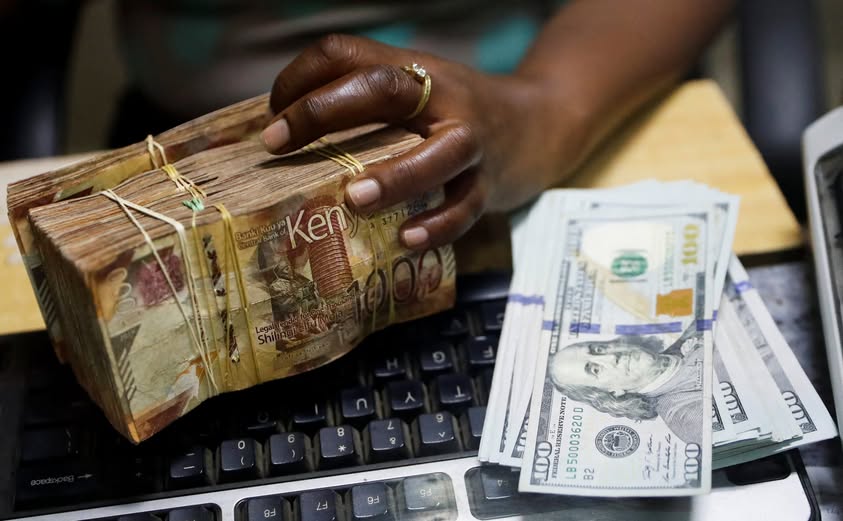Business
KRA Can Deem Your Bank Deposits As Taxable Income, Is M-Pesa Next?

Nairobi, September 7, 2025 — A recent ruling by the Tax Appeals Tribunal has sent a stark warning to Kenyan taxpayers: without clear documentation, all deposits into your bank account could be deemed taxable income by the Kenya Revenue Authority (KRA).
The decision, stemming from the case of Kirin Pipes Limited vs. KRA Commissioner (E1116/2024), raises questions about whether mobile money platforms like M-Pesa could face similar scrutiny.
In the case, KRA slapped Kirin Pipes Limited with a tax bill of Kes 34.3 million for income tax and Kes 22.7 million for VAT, covering 2019 to 2022, after classifying all deposits into the company’s bank accounts as taxable income.
Kirin Pipes argued that Kes 29.4 million were shareholder capital injections, Kes 31.7 million was an interest-free loan from Nanchang Municipal Engineering Development, and Kes 24.6 million were shareholder funds for operations, none of which should be taxable.
However, the Tribunal upheld KRA’s assessment, citing the company’s failure to provide certified bank statements, shareholder resolutions, or verifiable loan agreements.
The Tribunal emphasized that taxpayers bear the burden of proving deposits are non-taxable. Kirin Pipes’ CR12 form showed only an initial Kes 10 million capital, with no evidence of updated shareholding.
The alleged loan lacked clear terms or repayment proof, rendering it unverifiable. “Without sufficient, corroborative evidence, KRA is justified in treating all deposits as income,” the Tribunal ruled.
This precedent underscores the importance of meticulous record-keeping for businesses and individuals alike.
Tax experts warn that KRA’s aggressive stance could extend beyond traditional bank accounts.
“M-Pesa transactions, especially for businesses, are increasingly visible to KRA through integration with banking systems and digital tax platforms,” said Jane Mwangi, a Nairobi-based tax consultant.
“If you can’t prove your M-Pesa deposits are loans, gifts, or capital, they could be taxed as income.”
KRA’s access to mobile money data is growing, with Safaricom and other providers required to share transaction details under Kenya’s tax laws.
While individuals may not yet face the same level of scrutiny as businesses, the Kirin Pipes ruling signals KRA’s readiness to challenge undocumented deposits across platforms.
“M-Pesa is not immune,” Mwangi added.
“Businesses using mobile money for transactions should maintain clear records to avoid surprises.”
Taxpayers are urged to keep certified bank statements, loan agreements, and shareholder records to substantiate the source of funds. As KRA leverages technology to tighten compliance, the question looms: will your M-Pesa wallet be next?
Kenya Insights allows guest blogging, if you want to be published on Kenya’s most authoritative and accurate blog, have an expose, news TIPS, story angles, human interest stories, drop us an email on [email protected] or via Telegram
-

 Grapevine2 weeks ago
Grapevine2 weeks agoRussian Man’s Secret Sex Recordings Ignite Fury as Questions Mount Over Consent and Easy Pick-Ups in Nairobi
-

 News7 days ago
News7 days agoTHE FIRM IN THE DOCK: How Kaplan and Stratton Became the Most Scrutinised Law Firm in Kenya
-

 Investigations1 week ago
Investigations1 week agoMulti-Million Dollar Fraud: Three Kenyans Face US Extradition in Massive Cybercrime Conspiracy
-

 Economy1 week ago
Economy1 week agoIran Demands Arrest, Prosecution Of Kenya’s Cup of Joe Director Director Over Sh2.6 Billion Tea Fraud
-

 Business1 week ago
Business1 week agoA Farm in Kenya’s Rift Valley Ignites a National Reckoning With Israeli Investment
-

 Africa1 week ago
Africa1 week agoFBI Investigates Congresswoman Ilhan Omar’s Husband’s Sh3.8 Billion Businesses in Kenya, Somalia and Dubai
-

 Grapevine3 days ago
Grapevine3 days agoA UN Director Based in Nairobi Was Deep in an Intimate Friendship With Epstein — He Even Sent Her a Sex Toy
-

 Politics2 weeks ago
Politics2 weeks agoSifuna, Babu Owino Are Uhuru’s Project, Orengo Is Opportunist, Inconsequential in Kenyan Politics, Miguna Says
















